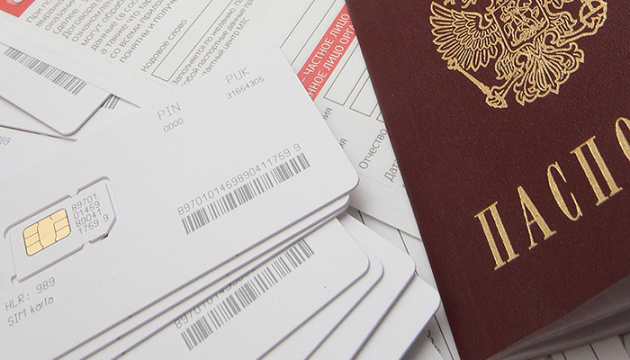
Occupiers have already issued 1.4 million ‘passports’ in CADLR
As the Office of the Ukrainian Parliament Commissioner for Human Rights informs, the occupation administrations operating in the temporarily occupied territories of Donetsk and Luhansk regions continue the forced passportization of the residents despite the coronavirus pandemic.
“As of today, more than 820,000 people received the so-called ‘passports’ of the occupation administration operating in the temporarily occupied territory of Donetsk region, more than 600,000 people – in the temporarily occupied territory of Luhansk region,” reads the statement.
In addition, according to the Ombudsperson's Office, the occupation administration operating in the temporarily occupied territory of Donetsk region announced that “passports” issued by the occupiers would be mandatory for those applying for “civil service”.
The Office emphasizes that the refusal to obtain these “passports” in the temporarily occupied territories of Donetsk and Luhansk regions entails restrictions on the rights of individuals, in particular – the right to work, receive social and pension benefits, which is a gross violation of international law, in particular, Article 52 of the Geneva Convention relative to the Protection of Civilian Persons in Time of War of 12 August 1949 and Article 75 of the Additional Protocol of 8 June 1977 (Protocol I).
Ukrainian Parliament Commissioner for Human Rights Liudmyla Denisova appealed to the Prosecutor General’s Office with a request to take appropriate measures over the facts of violation of the laws and customs of war, in particular, on the forced passportization of the residents of the temporarily occupied territories of Donetsk and Luhansk regions.
ol





